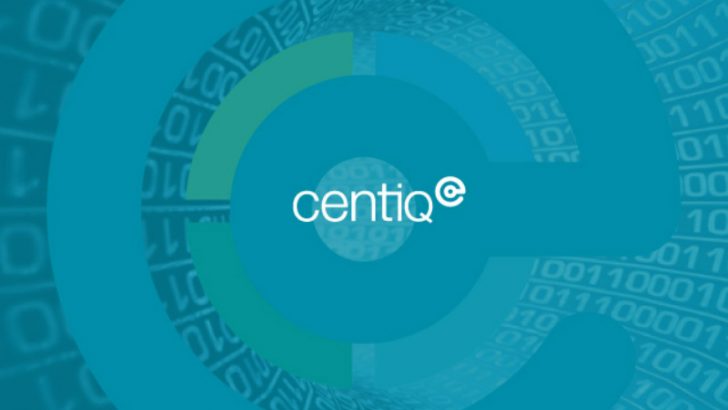

Glyn Heath is a founder and CEO of Centiq. Centiq is a certified SAP Services partner. Founded in 1998 as an IT Services company they are based in Nottingham, UK. They have delivered SAP HANA consulting services for more than six years and maintain more than 120 live production instances for customers with more than 150TB of data. Customers include well known brands such as Diageo, Halfords and Boots.
ET: What is your vision for the company?
Glyn Heath: We always try to be famous for something. We genuinely like to be seen and recognised as HANA experts. An organisation that leads the pack in the understanding of how you can make the best use of this technology, both now, as it evolves and as the uptake increases.
ET: Who is your inspiration and why?
Glyn Heath: I don’t think I could name an individual person, although I am an avid reader of a variety of biographies and autobiographies. I get a lot of inspiration from stories about anybody or any group of people that have tried and tried to achieve something, especially against the odds. I guess I’m a bit British in the sense that I like the underdog, whether they succeed or not. The inspiration comes from the endeavour people set out with and the effort they put into it.
If you’re looking for direct inspiration, my kids. if I didn’t have children, I guess I’d have to invent something else in my life to give it more of a purpose and meaning.
ET: How would you describe your leadership style?
Glyn Heath: I’d say it’s very open, inclusive, decisive and that I don’t prevaricate. I would also like to believe that I do that with some humility, which I think is an important thing. Whether other people perceive that, I guess, is down to them. That’s certainly how I’d like to be seen.
ET: What are your personal challenges for the next 12 months?
Glyn Heath: As an organisation and my role in it specifically, it’s, how do we continue to innovate against an increasingly competitive backdrop? Very few things keep me awake but if there was something, it would be how do I ensure that we stay ahead of the pack in the things that we choose to do?
ET: What was your darkest business day and how did you overcome it? It doesn’t need to be at Centiq.
Glyn Heath: In the late noughties, in the teeth of the global financial meltdown, we were affected like everybody else and had to have a round of redundancies. It’s the first and only time I’ve ever experienced that. It meant me making 15 people redundant in the space of a couple of days. That was probably my darkest moment as a business leader. If you’re an organisation where you can easily identify people that shouldn’t be there or had ceased to be particularly useful, you can take a degree of personalization out of it. When you have to make really brutal choices to see people go that under normal circumstances you absolutely would want to retain, I think that’s the really difficult bit.
ET: What was your proudest moment?
Glyn Heath: I’m fortunate that I keep getting those little things. What makes me proudest about this business is when we get unsolicited positive feedback from customers. There’s nothing more gratifying. I love to be able to share that stuff, because often it identifies individual members of staff and sometimes it’s more general about the business. That’s what I feel proudest of, when customers take it upon themselves to say, “Great job.”
ET: Can you share a tip for a new CEO?
Glyn Heath: I’ve seen this quite a few times especially if somebody is promoted into a role, or comes from outside a business and comes into that role. It’s very easy to get carried away with your own self-importance if you’re not careful. I’d say forget the job title and be more true to yourself. You clearly got that position on merit. Just make sure you stay focused on the things that helped you get to that place. I guess it goes back to my comment about humility.
The other is that it’s so easy to underestimate the impact of what you say and do on people around you. Some of the most innocuous things can be taken absolutely literally. You just have to be careful that you’re not inadvertently getting outcomes that you didn’t intend.
ET: What was the latest business book you read or your favourite book?
Glyn Heath: I actually finished reading it a few weeks ago because it’s absolutely fascinating, it’s called “The Blockchain Revolution” by Don and Alex Tapscott. This must be the sort of closet geek coming out in me because I am absolutely fascinated by blockchain. Right now, it doesn’t feature in our business, but my mind is working overtime on how on earth you commercialise this technology. I think it will be absolutely profound and genuinely revolutionary. That was the last one and it’s rapidly becoming one of my favourites.
If I was to pick a business book that’s one of my favourites, I’d say “Maverick” by Ricardo Semler. It is a fabulous blueprint for running the kind of organisation that most people dream of.
ET: What technologies will influence your industry in 2017?
Glyn Heath: There are two things. In memory computing will start to show some benefits. We’ve been around since the inception of the launch of HANA and we know that particular technology well. We track both competing proprietary technologies, including Oracle and open source such as MongoDB and HADOOP. We’ve almost got to re-calibrate what we expect from IT to make full use of it. There’s been a bit of a lag in people’s imaginations about what can this thing do? We’ve started to turn a corner on that and certainly from our narrow perspective, we’re seeing in the world of HANA some really interesting uses of it.
My pet one, that I’ve mentioned is blockchain, I think that is further away than 2017.
ET: Google Apps or MS Office?
Glyn Heath: Google all the way. We were like everybody else, Exchange Server, Outlook, all that good stuff and the transition was not pain free. It takes a lot of weaning people away from the things they’re comfortable and familiar with. This is not partisan about one vendor over another or even the functionality within the individual applications. The thing that turned it for us was collaboration We went to Google way before Office 365 and Microsoft’s own collaboration. If we were making the choice today, I don’t think it would be quite as clear cut.
ET: What was your reaction to the SAP, Google announcement? And what do you hope to come out of it?
Glyn Heath: Mixed. I’m very glad that they’ve thrown their hat into the ring. I’m curious as to why they’ve prevaricated and I think it would be easy to interpret that in several of the Google activities where they’ve gone into something and then bailed on it. It seems to me a bit of a wait and see. To their detriment, they’ve certainly allowed AWS and Microsoft with Azure to kind of get away from them a little bit but if they take it seriously, I think they can make up some ground. Despite not being a user of Microsoft technologies, I think absolutely the one to watch is Azure. I’m talking about SAP and HANA workloads.
ET: What’s the worst and best decision you’ve made as a CEO?
Glyn Heath: Funnily enough, I genuinely think it’s exactly the same thing. I believe in trusting people unconditionally until they breach that trust. From time to time it has been the worst decision when that trust is breached, but by the same token it’s far outweighed by the number of people that if you extend that trust unconditionally, you get way more in return. So I continue to do that. It is best and worst for the same thing, but for different reasons.
ET: What are the key challenges faced by your industry?
Glyn Heath: One’s definitely imagination and that’s not just an IT thing. It’s from line of business and other people providing services and application services. There is a gap in imagination as how you can use it.
I think the more immediate and probably more pressing issue is the skill shortage. Like any new technology or nascent technology, there’s a lag between the pool of talent available and the actual demand on it. The bell weather of course is your own challenges in recruitment, retention and spiralling salary demands. I think the skill shortage is probably the most pressing challenge.
ET: Are you seeing a shift from on premises deployment to cloud deployments of SAP HANA now?
Glyn Heath: A very cautious, yes. A lot of people have been doing the test, dev, QA workloads for quite a long time now in the cloud. Production workloads it’s only very recently that organisations have started to move those. I think that apparent caution or prevarication is driven by a whole bunch of things, but we’re definitely seeing an acceleration in engagements to talk seriously about how people move production workloads into the cloud. There’s definitely been an uptick in activity.
ET: What does the competitive threat landscape look like at the moment for SAP HANA?
Glyn Heath: The big one is the battle royale between them and Oracle, to win and oftentimes retain hearts and minds. I think SAP did a pretty shrewd thing in enabling all the applications very early in the product development lifecycle to work natively with HANA so that customers could, if they wanted to, unhook their proprietary databases.
There’s also tension across the segment in SAP zone, HANA Enterprise Cloud and other offerings, both on-premises and other SAP cloud offerings. That stories got some way to run before it gets properly resolved and it reaches some kind of BAU kind of situation. SAP need to enable whatever they’re going to call their cloud offering this week. They need to enable that more for the wider eco-system, rather than it really being their own direct sales channel. In terms of the competitive landscape you know Oracle will continue to fight tooth and nail.
IBM through DB2, DB2 BLU and their own proprietary technologies have got a foothold in that shared space with SAP. The open source technologies certainly have got scope to coexist, if not take part of that share for certain workloads. Indicative of that is the way SAP have opened up HANA to enable HADOOP extensions and things like that. They all recognise they’ve got to coexist rather than trying to own the customer outright.
ET: Are you seeing customers take up dev ops more and more in order to speed up deployments of SAP HANA?
Glyn Heath: We are, absolutely. Again it’s one of those things where you can’t flick through the job ads or anywhere else without stumbling over something to do with DevOps, but again that’s another thing that is woefully short in terms of the talent pool. You know a lot of people will start to attach DevOps to things they might have done in the past.
I think it’s got a long way to run and mature into something that where everybody has a completely shared understanding of what it is. One of the reasons why I’m so certain it’s here to stay and will gather momentum for things like SAP S4HANA, is that it will be the only way realistically you can take advantage of that technology and keep pace with the change. If you can’t enable micro services to work around the periphery of the core offering, it just won’t work. DevOps for me is an absolute must in the future world and I can only talk from the perspective of SAP because it’s the bit I know. I don’t doubt for a second that other application providers have a similar kind of model.
ET: In terms of your customers, what are they looking for in terms of balance now between things like speed, flexibility, ROI? Is it a changing?
Glyn Heath: ROI is an interesting one because I think there’s definitely a degree of caution that we’ve seen in our customer base and with our prospects. The financial justifications for projects is as rigorous as it was back in 2009, 2010 in my view. One of the primary criterion that organisations’ emerging projects are going to see is agility. So long as it stacks up commercially, there is an appetite for a premium for being able to be agile, for rapid deployment as well as for very, very highly orchestrated and automated provisioning. Organisations are really seeing value in that, so it’s not just about which is the lowest cost of ownership. The time to market is certainly a significant feature in our engagements.
ET: What’s the one question you’d like to ask another CEO to answer?
Glyn Heath: This is a very, very personal question. How do you know when it’s time to go? I am massively enthusiastic and excited by the next phase of development in the IT world. 25 plus years in I’m still excited about it. By the same token, every business leader has got to acknowledge at some point, it’s not forever. So how to you pick your moment? When is it time to go?
ET: Can you answer that question yourself?
Glyn Heath: I think I’m the least qualified. I think I will need to be told unfortunately. Bit of an Arsene Wenger I think, if you like football. Perhaps I wish I was Nico Rosberg, wins the world title, retires straight away absolutely at the top of his game. I guess that’s what we’d all like to do, but very few people seem to do it. If I cease to enjoy it, then that will certainly be a trigger. But, right now, it’s just too interesting.
ET: Thank you Glyn


























